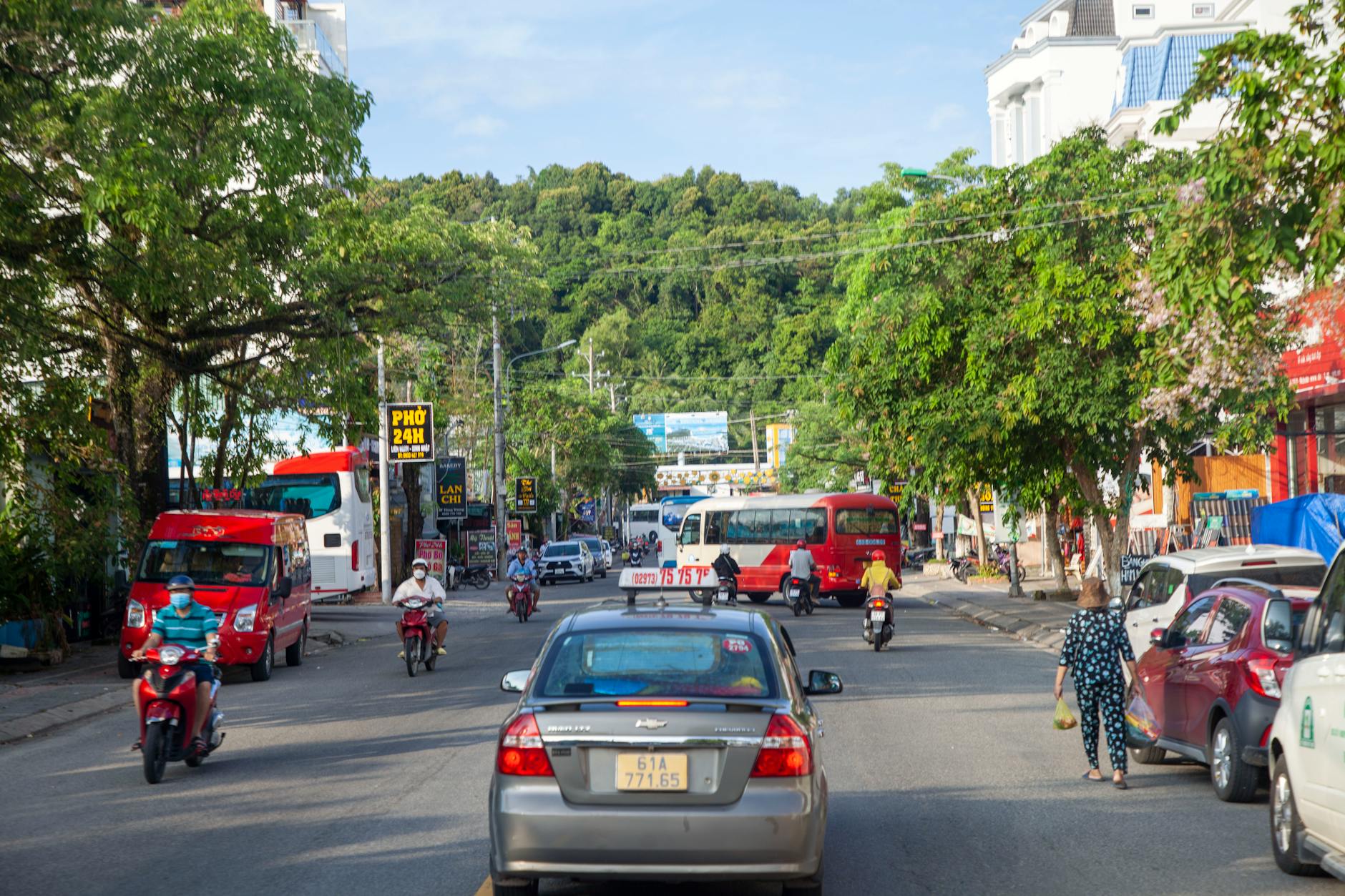How to Navigate Background Checks in Australia for Investigative Journalism

Understanding Background Checks
As someone deeply engaged in the world of true crime journalism, I lean heavily on the tools of my trade, one of which is understanding national police clearance. Whether you're examining criminal histories for a piece on societal trends or diving into a specific case, a good grasp of background checks is essential. Sitting in the heart of Brisbane, with a clear view out towards landmarks like the Queensland Police Museum, I'm constantly reminded of the importance these checks hold in investigative journalism.
Types of Background Checks
Background checks serve a plethora of purposes, and understanding the various types is crucial. For example, a comprehensive criminal record check is often indispensable when dealing with detailed case studies. On the other hand, a police check NT might be needed for delving into region-specific stories, like those involving the Northern Territory. Knowing which type to use will deepen the insight of your investigation.
Key Information Identified
A meticulous look at what these checks reveal can make or break a narrative. Information such as court outcomes, notable arrests, and past offences offer layers of context to any story. This goes beyond merely cataloging incidents—allowing journalists like me to uncover the nuances behind the numbers.
Privacy Laws to Consider
Being enlightened about privacy laws is non-negotiable. They impact how we access and utilize personal data in Australia. These laws ensure the balance between public interest and individual privacy, especially in sensitive areas I often explore. Mastery of these elements not only enhances the credibility of your work but also guards against legal pitfalls.
Accessing Background Checks
Approved Channels
Navigating the process of accessing background checks in Australia requires understanding the approved channels through which these checks are obtained. One such method is through a national police check victoria, which can be pivotal when your investigation crosses state lines. For instance, the Queensland Police Museum often serves as an informative resource, providing insights into the meticulous processes behind these checks. In Queensland, a national police check qld ensures comprehensive coverage of an individual's criminal history across the state. These state-specific checks are essential for uncovering detailed local information that might otherwise be overlooked.
Required Documentation
Gathering necessary documentation is a critical step in accessing background checks. Typically, you'll need identification such as a driver's license or passport. Additionally, providing proof of address can be required, further substantiating your request. As a journalist in investigative fields, having these documents at the ready facilitates a smoother request process. Emphasizing thorough prep ensures your application is processed without delays, enabling you to verify national criminal history check details expediently.
Legal Limitations
Understanding legal limitations surrounding background checks is crucial. Each state has specific regulations dictating how these checks are requested and used. For instance, Queensland has laws governing the dissemination and use of sensitive information gleaned from these reports. Familiarising oneself with these regulations not only ensures compliance but upholds journalistic integrity when reporting on subjects. Legal workshops and resources at institutions like the University of Queensland’s School of Communication and Arts provide valuable insights into navigating these complexities.
Techniques for Investigative Journalism
Using Background Checks Effectively
In my experience, when tackling true crime and investigative stories, it's crucial to use background checks judiciously. They aren't just about knowing someone's past; they become an investigative tool that evokes deeper insights into the subject’s history. In Australia, particularly within Queensland, services like a police check online play a fundamental role. These checks can often illuminate hidden links in cases, allowing you to delve deeper into stories with precision. Since a single detail might pivot a narrative significantly, make sure the information you pull, especially from a police check sa, is corroborated with other evidences.
Interview Tips
Interviews can make or break an investigative piece. My years at the Brisbane Magistrates Court and other local landmarks have taught me the power of an attentive ear. Start by establishing trust and rapport; your subject is more likely to open up if they feel genuinely understood. Always remain respectful and remember that silence can be as powerful as any question. Often, a slight pause can prompt an interviewee to add unplanned revelations that enrich your story.
Fact-Checking Strategies
Fact-checking isn't merely supporting your narrative; it's about safeguarding your credibility as an investigator. Verify each piece of gathered information, as an unchecked fact tides over a risk of misinformation, an ultimate red flag for any journalist. Engaging with databases and resources like the Queensland Police Museum can add authoritative weight to your findings. Remember, the stories we tell are a reflection of truths. Keeping an unwavering eye on factual accuracy serves as a testament to the trust vested in us by the public.
Ethical Considerations
Balancing Privacy and Public Interest
In Australia, balancing privacy and public interest is a delicate dance, particularly when conducting an Australian police check. Over the years, my experiences as an investigative journalist have highlighted the complexities of navigating ethical boundaries. While investigating, there is often a temptation to include every juicy detail uncovered. However, it's paramount to weigh the potential harm against the public's right to know. Often, this involves consulting legal advisors or ethical committees to ensure that the story remains fair and just.
Handling Sensitive Data
Handling sensitive data, such as results from a police check Tasmania, comes with its own set of responsibilities. Over time, I've developed protocols to store information securely and limit access to the most critical details. For others in the field, I recommend establishing a system where sensitive data is encrypted and shared only with trusted sources. It's vital to maintain the confidentiality of individuals involved until the information is ready for publication.
Legal Repercussions
Legal repercussions can arise from neglecting these ethical considerations, as I learned from a complex investigation early in my career. It wasn't until I sat through a tense session at the Brisbane Magistrates Court that I fully grasped the potential consequences of my work. Circumventing privacy laws or mishandling data could lead to severe legal actions, both for the publication and personally. Understanding these implications thoroughly is crucial in maintaining journalistic integrity while upholding public trust.
Common Challenges in Investigative Reporting
Navigating Delays and Overcoming Obstacles
In the heart of investigative journalism, delays are as common as a warm day in Brisbane. Gaining access to records or background information can be a cumbersome process due to bureaucratic red tape. Take it from my time at the Brisbane Magistrates Court, where just getting public records can test your patience. Being prepared with all necessary documentation upfront is key, especially when formal requests to the Queensland Police Museum can take weeks.
Ensuring Data Accuracy
The challenge of data accuracy cannot be overstated. Imagine relying on flawed information for a piece—misleading interpretations can lead to quite the headache. It’s critical to cross-reference information. During a case that echoed through the University of Queensland's corridors, meticulous cross-checking became my mantra. We often utilise multiple data sources to ensure precision, from court archives to scholarly databases.
Avoiding Misinterpretations
Misinterpretations are the bane of any investigator's existence. One wrong assumption and a promising lead could turn into a dead-end. I've always found that maintaining objectivity and avoiding preconceived notions are vital. Engaging with experts from the University of Queensland's School of Communication and Arts provides invaluable perspectives, often enlightening me on nuances I might have overlooked.
Among these challenges, maintaining a rigorous standard ensures the information serves the public interest reliably. Such diligence ensures not only the integrity of the story but also the trust of the public.


